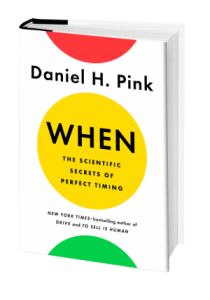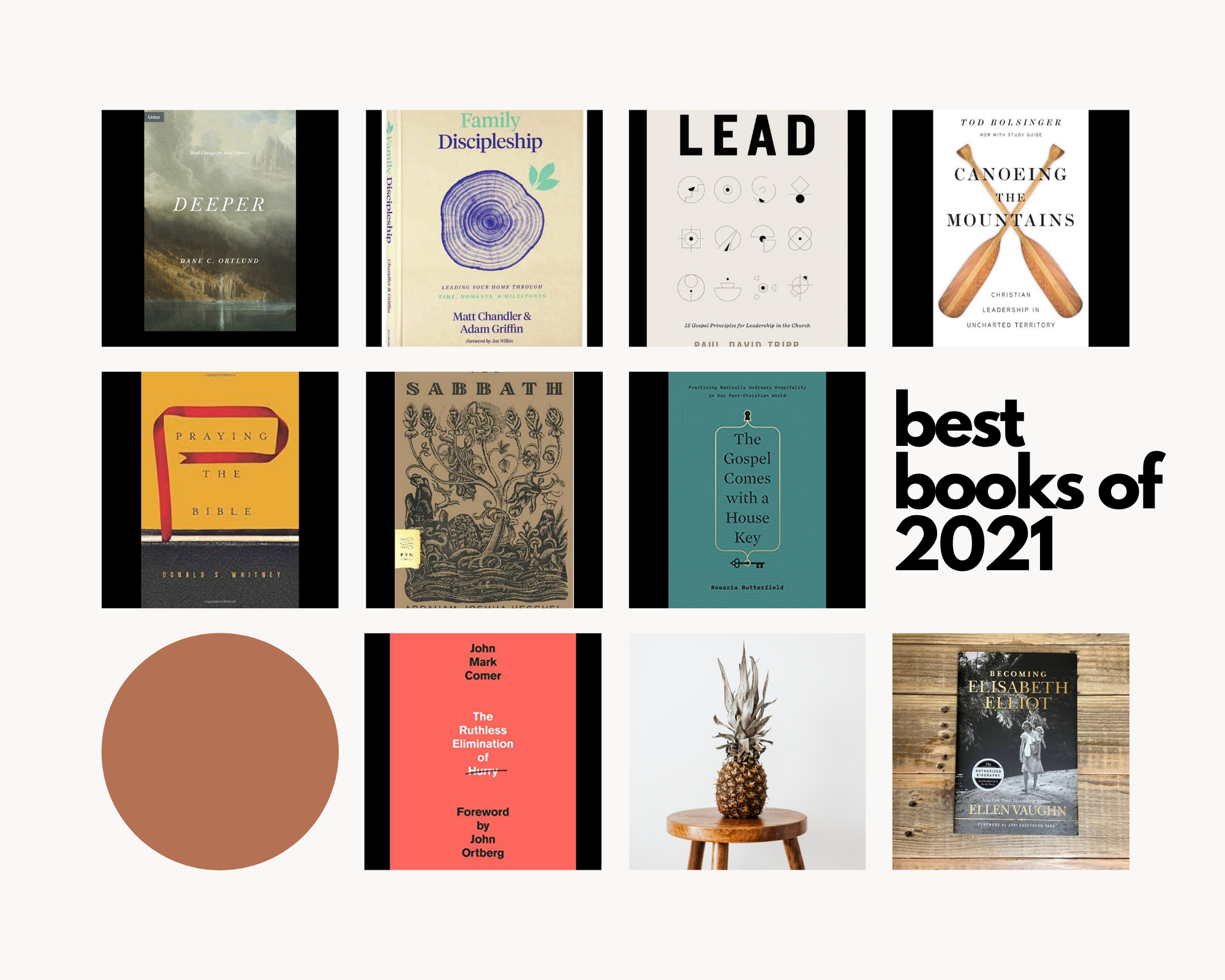I’ve been hearing a lot about Daniel Pink’s new book When and finally picked it up a few weeks ago. I previously read and review both Drive and A Whole New Mind. Somehow I accidentally picked up the large print version of When..and realized that the big words really help! I really enjoyed reading Pink’s thoughts about properly stewarding our limited mental and emotional resources for both our individual and collective well-being. This book proved to be a quick read full of some great takeaways. I’ve made some notes in my calendar to consider when planning project times for myself and brainstorming time for our team.
I highlighted several things while reading and have posted those notes below…
- When our minds are in vigilant mode, as they tend to be in the mornings, we can keep such distractions outside our cerebral gates. p. 35
- If you have even modest control over your schedule, try to nudge your most important work, which usually requires vigilance and clear thinking, into the peak and push your second-most important work, or tasks that benefit from disinhibition, into the rebound period. Whatever you do, do not let mundane tasks creep into your peak period. p. 54
- “The afternoon knows what the morning suspected.” Robert Frost p. 69
- Lunch breaks offer an important recovery setting to promote occupational health and well-being—particularly for employees in cognitively or emotionally demanding jobs. For groups that require high levels of cooperation, eating together also enhances team performance. p. 95
- In many ways, naps are Zambonis for our brains. They smooth out the nicks, scuffs, and scratches a typical day has left on our mental ice. p. 98
- A growing body of science makes it clear: Breaks are not a sign of sloth but a sign of strength. p. 104
- Each day, alongside your list of tasks to complete, meetings to attend, and deadlines to hit, make a list of the breaks you’re going to take. p. 109
- If there are relatively few competitors, going first can help you take advantage of the “primacy effect,” the tendency people have to remember the first thing in a series better than those that come later. p. 161
- “If you want a happy ending, that depends, of course, on where you stop your story.” Orson Welles p. 213
- Endings help us encode—to register, rate, and recall experiences. But in so doing, they can distort our perceptions and obscure the bigger picture. p. 230
- Closings, conclusions, and culminations reveal something essential about the human condition: In the end, we seek meaning. p. 244
- “That is happiness; to be dissolved into something complete and great.” Willa Cather, My Antonia p. 263
- I used to believe that synchronizing with others was merely a mechanical process. Now I believe that it requires a sense of belonging, rewards a sense of purpose, and reveals a part of our nature. p. 327
- I used to believe that timing was everything. Now I believe that everything is timing. p. 327


